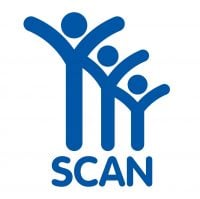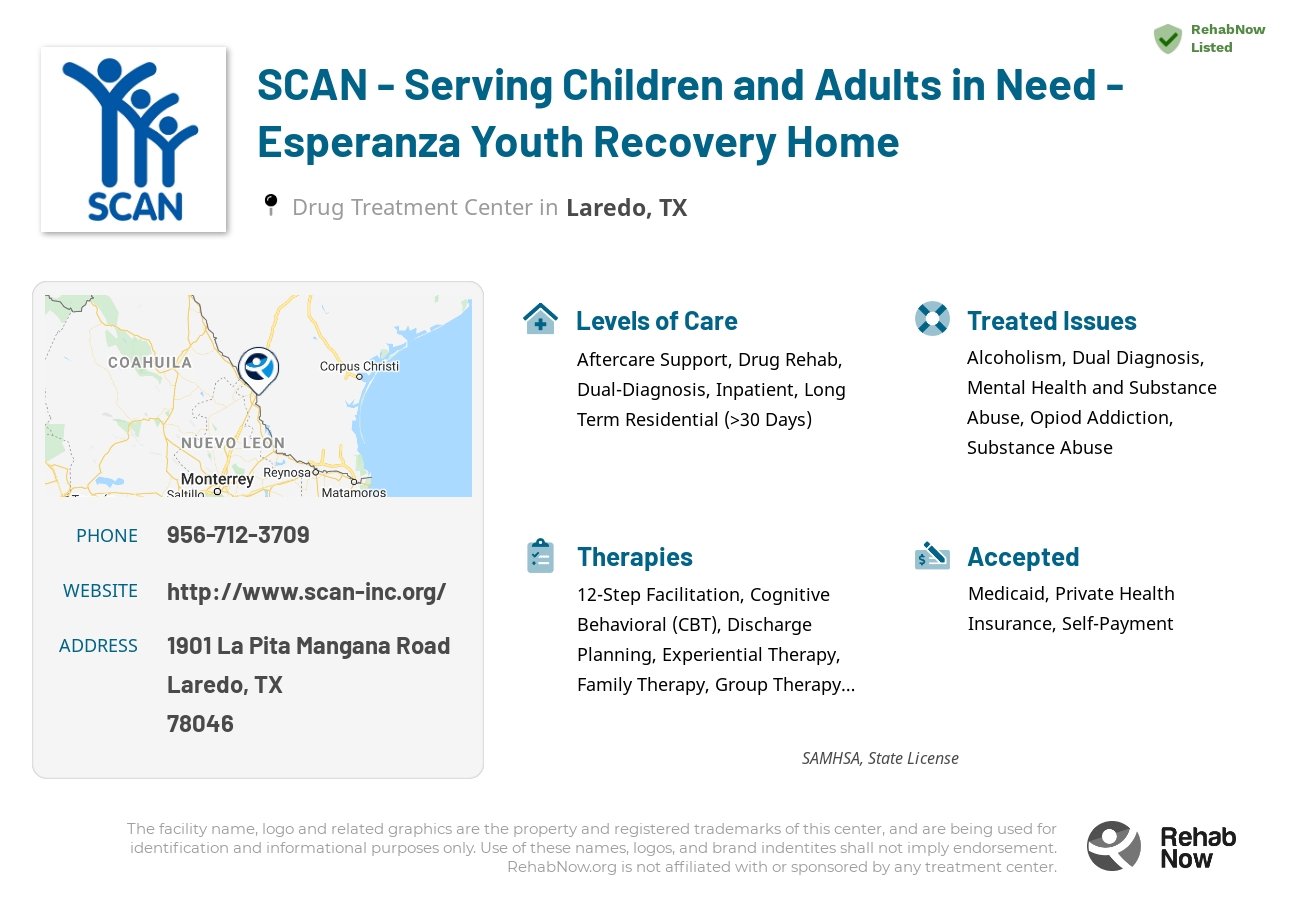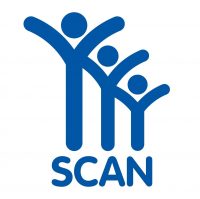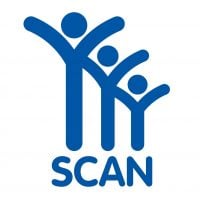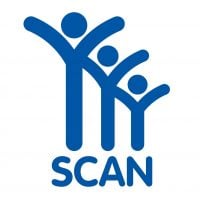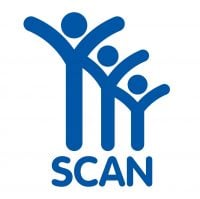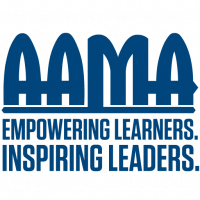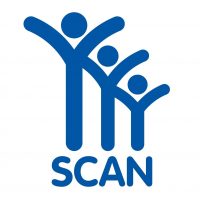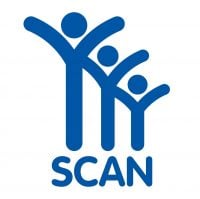SCAN - Serving Children and Adults in Need - Esperanza Youth Recovery Home
Drug Rehab Center in Laredo, Texas
Serving Children and Adults in Need (SCAN) Esperanza Youth Recovery Home provides state-licensed and SAMHSA-accredited substance abuse treatment services in Laredo, TX, including individual and group therapy, experiential therapy, life skills, and aftercare support for long-term sobriety and improved quality of life.
About This Texas Facility
SCAN - Esperanza Youth Recovery Home, located in Laredo, Texas, is an addiction treatment center that provides evidence-based prevention, intervention, and treatment services to adolescents struggling with substance abuse.
The highly trained and caring staff at SCAN - Esperanza Youth Recovery Home are dedicated to helping individuals heal their mind, body, and soul through comprehensive residential treatment programs.
This rehab center specializes in treating drug and alcohol abuse in females between the ages of 13 and 17, offering a safe and supportive environment for recovery.
- Eight-bed residential treatment program for female adolescents
- Individual, group, and family therapy sessions
- Experiential activities to promote healing and personal growth
- Trauma-informed care and case management services
The adolescent residential treatment program at SCAN - Esperanza Youth Recovery Home combines evidence-based therapies, such as individual and group counseling, with family support and educational services to ensure a well-rounded approach to recovery. Residents also benefit from relapse prevention strategies and case management to help them maintain long-term sobriety.
Drug and alcohol addiction is a significant issue among adolescents in Texas, and SCAN - Esperanza Youth Recovery Home is well-equipped to address these challenges through its specialized treatment programs and dedicated staff.
Adolescent females between the ages of 13 and 17 who are struggling with drug or alcohol addiction can find the support and resources they need at SCAN - Esperanza Youth Recovery Home to achieve lasting recovery.
Genders
Ages
Modality
Additional
Accreditations
State License
SAMHSA

JCAHO
Conditions and Issues Treated
Dual Diagnosis refers to someone who is both dealing with addiction and another mental health issue.
There are different kinds of Dual Diagnosis: A person who simultaneously experiences both a mental illness and an addiction disorder. Or, a person who experiences one or more coexisting (simultaneous) mental health conditions in addition to a primary substance use disorder.
Some conditions that commonly co-occur with addiction include:
- Personality Disorders (Borderline, Narcissistic)
- Mood Disorders (Bipolar Disorder, Depression, Anxiety Disorder)
- PTSD (Post Traumatic Stress Disorder), OCD (Obsessive Compulsive Disorder), ADHD (Attention Deficit Hyperactivity Disorder)
- Schizophrenia, Psychosis, Hallucinations, Delusions
Levels of Care Offered at SCAN - Serving Children and Adults in Need - Esperanza Youth Recovery Home
This center offers a variety of custom treatment tailored to individual recovery. Currently available are Aftercare Support, Drug Rehab, Dual-Diagnosis, Inpatient, Residential, with additional therapies available as listed below.
Individuals who are suffering from severe addiction or have a high risk for dangerous health concerns are often recommended to receive inpatient treatment.
Choosing to enter an inpatient treatment program is beneficial for people who are suffering from severe addiction, or who have a high risk for dangerous health concerns.
Inpatient treatment is beneficial for:
- People who have a history of severe withdrawal.
- People who have attempted to overcome addiction on their own without success.
- People who have a history of relapse, or have recently relapsed.
- People at risk for drug overdose or withdrawal-related complications.
- People with medical conditions that are worsened by drug or alcohol use.
Residential treatment programs are those that offer housing and meals in addition to substance abuse treatment. Rehab facilities that offer residential treatment allow patients to focus solely on recovery, in an environment totally separate from their lives. Some rehab centers specialize in short-term residential treatment (a few days to a week or two), while others solely provide treatment on a long-term basis (several weeks to months). Some offer both, and tailor treatment to the patient’s individual requirements.
People who have completed a rehab program often need continued support from the addiction treatment team in order to remain abstinent from drugs and alcohol. Aftercare can be beneficial for personal, social, and emotional growth.
Common aftercare options include:
- Individual Therapy – this type of addiction counseling is available on a one-on-one basis. This can be beneficial for people with a high degree of emotional turmoil and a strong desire to overcome addiction.
- Group Therapy – this type of addiction counseling is available in a group setting. This type of treatment can be beneficial for people who are unable to attend regular therapy appointments due to other responsibilities.
- Family Therapy – this type of addiction counseling is available to the family members of addicts. This can be beneficial for people who are unable to fully comprehend what their loved ones are experiencing due to addiction.
Therapies & Programs
Therapy sessions focused on the individual addict can provide much-needed guidance as they work toward overcoming their addiction. These types of sessions typically involve guidance from a therapist, who will help addicts identify and process their feelings and cravings.
During these sessions, addicts may develop plans for coping with the triggers that typically lead to relapse and learn how to avoid those triggers during their recovery process.
The main goal of family therapy for drug addiction is to create an environment where communication can occur without judgment, hostility, or blame that often occurs within a family.
Family therapy is a type of group problem-solving that aims to improve communication and relationships between the patient, their family, and sometimes friends. The therapist is with the family as they learn to communicate with each other differently, especially with the addict when s/he is using.
The family can learn to reduce their enabling behavior or rally together and support each other during tough times. The patient also learns how to deal with their addiction and maintain sobriety while interacting with the family.
Different types of addiction treatment services are available. Within this article, group therapy is of interest due to its high success rate compared to individual therapy. Group therapy settings are beneficial because they allow recovering addicts to build a strong support network.
Benefits of group therapy are:
- Reduces feelings of isolation
- Immediate access to social support in the form of fellow addicts in recovery
- Lowers risk of relapse
- Increases rate of sobriety
- Builds coping skills that can be applied to everyday life
Trauma Therapy is a form of therapy that involves working with a patient to help them process and understand the past trauma(s) in their life. The idea behind it is that while some people can experience traumatic events and not have lasting psychiatric symptoms, many others will. In these cases, memories of the event get hidden from consciousness but continue to influence how the person processes and copes with things in their life. They may avoid situations that resemble what happened or become suddenly angry or irritated to a situation that reminds them of a past event.
With the help of a therapist, people can go back over memories and experiences. This helps them understand why they are having problems coping with certain situations and how they can change how they think and react to things. This therapy is typically done using techniques such as visualization, discussion, and writing down thoughts and feelings.
Trauma therapists will work with clients to help them understand their past and present relationships. Many times, patients may believe that something is inherently wrong with them or that they are unworthy of love. A therapist aims to correct these negative feelings and behaviors by helping the person realize that their actions do not reflect who they truly are.
One of the main goals of trauma therapy is to help clients express their emotions and talk about what they are feeling. This benefits both to increase awareness of how certain events have impacted them in the past and enables patients to realize that they can make changes in their lives.
Cognitive Behavioral Therapy (CBT) is used by drug treatment centers to help addicts comprehend the causes of their substance abuse and the consequences that follow. Through CBT, clients learn to recognize and avoid high-risk situations and cope with challenging situations when they arise.
CBT treatment often includes a combination of individual therapy, group therapy, lectures, and other activities. The treatment’s goal is to help addicts gain self-control and maintain abstinence from drugs and alcohol over the long term so that an addict can get sober and lead a more productive life.
CBT is particularly effective in helping people overcome their drug problems, especially people whose drug abuse is motivated by self-defeating beliefs and emotions.
Those struggling with addiction in Texas can benefit from learning certain life skills. It is not as simple as quitting drinking or taking drugs and thinking that the hard part is over. Being sober means living a whole new way of life. Many recovering addicts have found that they need to develop talents like time management, organization, communication skills, socialization skills, and self-esteem to make their life in sobriety work.
Drug and alcohol addiction can lead to a breakdown in life skills. Learning certain life skills can help those who are struggling with addiction. Life skills training at SCAN - Serving Children and Adults in Need - Esperanza Youth Recovery Home in Laredo, TX teaches patients skills such as time management, budgeting, and social abilities to improve their quality of life and prevent relapse.
An addict’s life skills are maladaptive, meaning they are counterproductive. An addict may have learned poor time management skills growing up, have a hard time budgeting money, or be socially awkward. An addict’s poor life skills can lead to relapse and the inability to achieve long-term sobriety. Life skills training teaches patients effective coping mechanisms, which can help them live a clean and sober life.
Patient Experience
Experiential Therapy at SCAN - Serving Children and Adults in Need - Esperanza Youth Recovery Home
Experiential therapy is a form of psychotherapy where patients are asked to engage in activities such as role-play, poetry writing, music composition, exercising, or journaling to help process intense feelings. The aim of the therapy is to help patients access deeper, often hidden emotions by helping them explore their own body and mind.
Payment Options Accepted
For specific insurance or payment methods please contact us.
Is your insurance accepted?
Ask an expert, call (888) 674-0062
Serving Children and Adults in Need Associated Centers
Discover treatment facilities under the same provider.
- SCAN - Serving Children and Adults in Need - Serenidad Recovery Home in Laredo, TX
- SCAN - Serving Children and Adults in Need - Youth Recovery Home in Laredo, TX
- SCAN - Serving Children and Adults in Need in Brownsville, TX
- SCAN - Serving Children and Adults in Need in Laredo, TX
- SCAN - Serving Children and Adults in Need - Youth Recovery Home in San Benito, TX
Learn More About Serving Children and Adults in Need Centers
Additional Details
Specifics, location, and helpful extra information.
Laredo, Texas 78046 Phone Number(956) 712-3709 Meta DetailsUpdated April 15, 2024
Staff Verified
What else do people call SCAN – Serving Children and Adults in Need – Esperanza Youth Recovery Home?
People have occasionally also searched for “SCAN - Serving Children and Adults in Need - Esperanza Youth Recovery Home in Texas”
Patient Reviews
There are no reviews yet. Be the first one to write one.
Laredo, Texas Addiction Information
Texas is one of the primary hubs for drug smuggling into the country. The border between Texas and Mexico is more than 1,000 miles long. More than 10 million residents use alcohol every year and more than 25% of those are minors. Alcohol and drug use has become so common in Texas that almost 15% of all deaths can be attributed to these substances.
Laredo, Texas, has seen a significant increase in drug addiction and abuse problems. 15% of residents aged 12 and over reported using illicit drugs in the past month. In 2017, Laredo had a total of 8 heroin-related deaths, up from two in 2016. Most drug addicts in Laredo don't know where to turn for help. Drug rehab centers can be an excellent resource for getting sober and starting a new life.
Treatment in Nearby Cities
- Bryan, TX (291.3 mi.)
- Texarkana, TX (524.6 mi.)
- Canton, TX (313.5 mi.)
- La Grange, TX (231.6 mi.)
- Childress, TX (484.4 mi.)
Centers near SCAN - Serving Children and Adults in Need - Esperanza Youth Recovery Home
The facility name, logo and brand are the property and registered trademarks of SCAN - Serving Children and Adults in Need - Esperanza Youth Recovery Home, and are being used for identification and informational purposes only. Use of these names, logos and brands shall not imply endorsement. RehabNow.org is not affiliated with or sponsored by SCAN - Serving Children and Adults in Need - Esperanza Youth Recovery Home.
